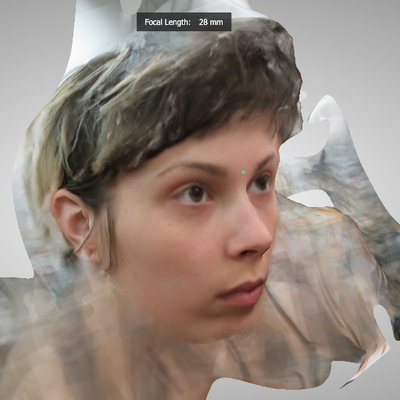Sarah Friend

Sarah Friend is an artist and software engineer working at a large blockchain development studio. When not doing that, she creates games and other interactive experiences. Her practice investigates murky dichotomies - like those between privacy and transparency, centralization and decentralization, and the environment and technology - with playfulness and absurdist humour. She is a proud Recurse Center alum, has recently presented at Transmediale in Berlin, Ethereal Summit in NYC, and NorthSec in Montreal, and is one of the organizers of Our Networks, a conference in Toronto.
Presenting
Decentralization and its Discontents
There is building movement to decentralize the web (or re-decentralize the web) with newer technologies, such as secure scuttlebutt, peer-to-peer file storage like dat or ipfs, and blockchain gaining popularity. Older technologies like mesh networking are enjoying a resurgence as well. Communities that engage with these technologies often frame decentralization as a moral good in and of itself - but to what extent has this claim been validated?
We'll consider examples where censorship resistant networks are used to host content that is morally repugnant to their maintainers, at times when centralized networks are cracking down (stormfront.eth vs blacklisting by dns providers), cases where there is disagreement about what constitutes decentralization at all (proof of work mining vs semi-trustful proof of authority), and seeming technical challenges that block decentralization (scalability of p2p file storage and performance). The concept of decentralization appears, at least on the surface, to be the enemy of specialization - but yet the networks we hope to build are the product of specialized knowledge. Can we decentralize the building of decentralized networks themselves?
Ultimately, I hope to make the point that decentralization without governance has few, if any, inherent moral qualities, and that we must consistently and intentionally consider not only how, but why and for whom, we decentralize.
Workshop with Saraswathi Subbaraman
Creative Economics and Networked Abundance
All of the networks we hope to build sit atop or are funded within a financial system that was designed neither for us, nor by us. There are many cases where what is valued by mainstream capitalism aligns poorly with our values, and fails to sustain our communities and infrastructure.
Blockchains promise on the surface to allow for p2p financial networks, but in practice they've disproportionately rewarded a tech-elite of early adopters. Circles is a proposal to build a Universal Basic Income on the blockchain, and hopes to offer an alternative that is flat, truly p2p, and does not encourage speculation or hoarding. If we could imagine a truly p2p financial system, what new sets of values could emerge?
We will lead workshop participants through a speculative/imaginative exercise of what the economy could look like:
- If care work was valued?
- If it was impossible to hoard money?
- If sustainability was rewarded?
We'll invite participants to write short fiction, draw pictures and diagrams, or enact small skits, exploring how alternate theories of value could sustain our networks and restructure our communities.
Additional information

